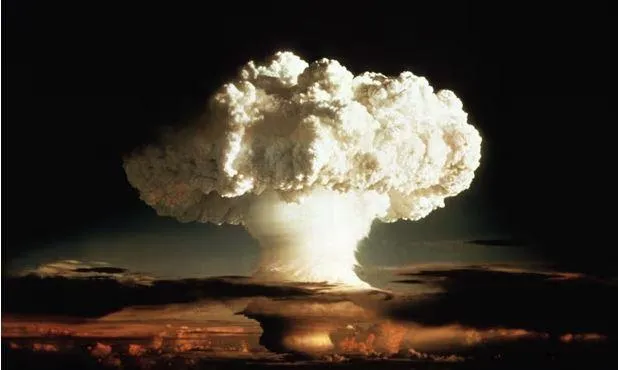Choose Peace, Because Nuclear War Is A Real Possibility For The First Time in 80 years
Opinion

f gf
Image: f
Eighty years ago, the world witnessed the devastating conclusion of World War II with the nuclear bombings of Hiroshima and Nagasaki.
The atomic age was born in tragedy, etched permanently into the conscience of humanity. Today, we face a chilling reality: for the first time since those horrific events, the threat of nuclear war is no longer theoretical. It is real, it is present, and it is dangerously close.
The visuals of mushroom clouds rising over Japanese cities remain one of the most harrowing symbols of human destruction. Those bombs ended a war but launched a new era of fear, a world living under the shadow of annihilation. Yet, here we are again, closer than ever to that precipice.
In Across the River and Into the Trees, Ernest Hemingway wrote that war is fought not for peace, but for profit, for corporations, not for people. That truth echoes loudly today.Modern conflicts are sustained not by necessity, but by greed. Armaments industries thrive, politicians posture and the media often becomes complicit, glorifying war while ignoring its cost. War, I believe, has no victors. Only victims.
Today’s nuclear arsenal makes Hiroshima look primitive. Modern warheads have unprecedented destructive power and delivery speed. A single strike can obliterate millions.
Even more concerning is the advent of “tactical” nuclear weapons – smaller bombs with concentrated impact, falsely marketed as controlled warfare. Their use is no longer speculative; whispers of their deployment already circulate in recent Middle Eastern conflicts.
We must distinguish between nuclear power and nuclear capability. The latter is a growing global risk. Beyond the traditional superpowers, the United States, Russia, China, the United Kingdom, and France, we now face a widening circle of states with nuclear ambitions or stockpiles.
Israel, Iran, Pakistan, India, North Korea, and others pose escalating regional risks.
From the Kashmir border to the Gaza Strip, from the Taiwan Strait to the South China Sea, we are sitting atop pressure points that could ignite instantaneously. Unlike conventional wars that escalate slowly, nuclear conflict requires only one command, one perception of existential threat, and one miscalculation. The most probable nuclear flashpoint today lies between India and Pakistan. Rooted in history, religion, and increasingly, resource disputes over the Indus River, the conditions are combustible. Israel and Iran remain a second front, driven by existential anxieties and a dangerous imbalance of military capability.
Russia and NATO, North Korea and South Korea, Taiwan and the PRC, and even the US and China, each theatre carries its own fuse, waiting for a spark.
But the greatest danger is not weaponry. It is dehumanisation. The ability to reduce an entire people to less than human, by race, religion, or geopolitics, creates the moral detachment needed to justify nuclear action. Once we stop seeing each other as equals in humanity, pressing the button becomes thinkable.
South Africa, my country, offers both a warning and an example. During apartheid, the regime developed nuclear weapons, not for global war, but to potentially use against its own people. Black South Africans were confined to “homelands” that could be wiped out if necessary.
What does that tell us about how nuclear weapons intersect with racism, fear, and power?
Thankfully, under Nelson Mandela’s leadership, South Africa became the first country to dismantle its nuclear arsenal voluntarily. It was a choice for peace, a stand for humanity. The world needs another Mandela moment.
Today, leaders must choose dialogue over destruction. We need courage, not arrogance. We must listen, not lecture. We must restore the values of balance, mutual respect, and shared humanity. And above all, we must end the lie that war, especially nuclear war, is ever a solution.
Peace is not weakness. It is wisdom. It is the recognition that our shared future is too precious to risk for political gain, economic profit, or nationalist ego. Religious leaders, intellectuals, civil society, and especially the media must stop being silent spectators.
They must speak, loudly and clearly, against the rhetoric of war. As someone who has had the privilege of engaging with global leaders, including recently with President Vladimir Putin in Moscow, I know that diplomacy, when rooted in honesty and humility, can defuse even the most dangerous situations. We must make room for such diplomacy again.
While nuclear war is a possibility, it is not inevitable. But time is not our ally. We must act with clarity, urgency, and collective will.
Let us not sleepwalk into catastrophe. Let us instead awaken to the truth: that peace, not war, is the only legacy worth leaving behind.